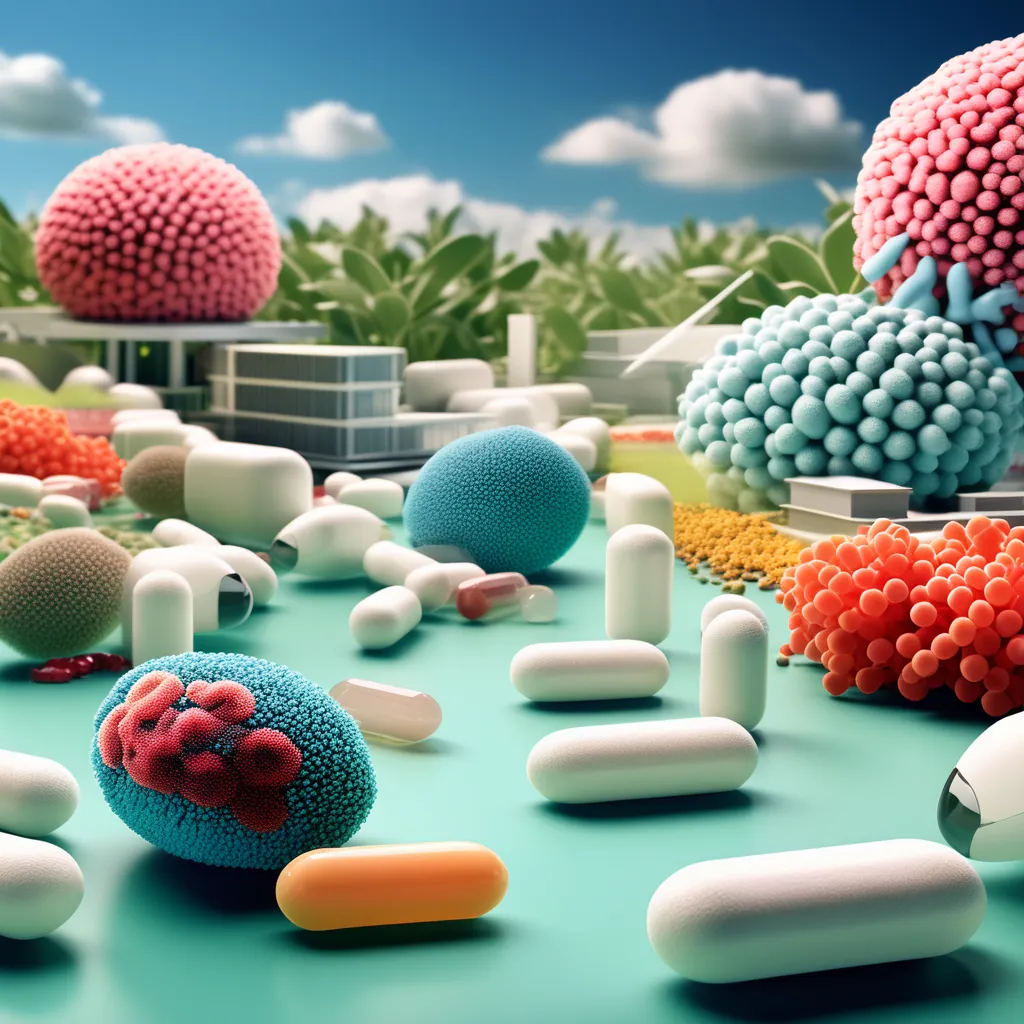The Growing Threat of Antibiotic Resistance
Antibiotics have been a game-changer in modern medicine, saving countless lives and tackling bacterial infections. However, a silent crisis is unfolding – the alarming rise of antibiotic resistance. It's a threat that not only jeopardizes our ability to treat infections but also undermines the foundations of medical progress. Let's delve into this growing concern and understand why it demands urgent attention.

The Antibiotic Era: A Personal Reflection
A Brush with Antibiotics
I've had my fair share of encounters with antibiotics, from childhood ear infections to occasional bouts of strep throat. Antibiotics were the trusty soldiers that swiftly fought off bacterial invaders, bringing relief and recovery. It seemed like a straightforward victory – until I delved into the complexities of antibiotic resistance.
Antibiotic Overuse and Misuse
My Antibiotic Epiphany
As a health-conscious individual, I was startled to learn about the widespread overuse and misuse of antibiotics. The times I insisted on antibiotics for a common cold suddenly felt like contributing to a larger problem. It became evident that the casual use of these drugs, often without proper prescription or completion of the prescribed course, was fueling the emergence of antibiotic-resistant strains of bacteria.
The Mechanism of Antibiotic Resistance
Bacterial Survival Tactics
The Darwinian Battle
Bacteria, like any other living organisms, adapt to survive. When exposed to antibiotics, some bacteria may develop resistance mechanisms. It's a Darwinian battle where the fittest – or in this case, the most resistant – survive and pass on their resistant traits to the next generation of bacteria.
Horizontal Gene Transfer
Bacteria can even share genetic material horizontally, swapping resistance genes among themselves. This rapid exchange of genetic information accelerates the spread of resistance. It's like bacteria attending a resistance-themed networking event, sharing survival tips with their peers.
The Consequences of Antibiotic Resistance
Diminished Treatment Options
My Wake-Up Call
Understanding antibiotic resistance was a wake-up call. The once-effective antibiotics might become powerless against resistant strains. Common infections could transform into life-threatening conditions due to a lack of effective treatment options.
Routine Surgeries at Risk
Even routine medical procedures, such as surgeries and chemotherapy, could become riskier without effective antibiotics to prevent or treat infections. The post-surgery infections we often take for granted may no longer be easily manageable.
Economic Burden and Healthcare Costs
The Ripple Effect
The economic impact of antibiotic resistance is profound. Treating resistant infections requires more expensive and sometimes less effective drugs. Increased hospital stays and additional medical interventions contribute to a ripple effect of escalating healthcare costs.
Agriculture's Role
It's not just in healthcare – the use of antibiotics in agriculture for promoting growth in livestock contributes to the problem. The interconnectedness of human and animal health highlights the need for a holistic approach to tackle antibiotic resistance.
The Call for Responsible Antibiotic Use
My Personal Resolution
Armed with knowledge, I made a personal resolution to be more mindful of antibiotic use. I became an advocate for completing prescribed courses, avoiding self-medication, and educating others about the importance of responsible antibiotic use.
The Role of Healthcare Professionals
Empowering Patients
Healthcare professionals play a crucial role in empowering patients to understand when antibiotics are truly necessary. Open communication and education create a partnership where patients actively participate in their healthcare decisions.
Research and Development
Investment in research and development of new antibiotics is imperative. However, this must be coupled with prudent antibiotic stewardship to ensure these precious resources are used judiciously and not squandered.
Global Collaborations and Policy Initiatives
A Collective Responsibility
International Cooperation
Antibiotic resistance is a global challenge that demands international cooperation. Sharing information, coordinating efforts, and implementing unified policies are essential in combating this threat collectively.
National Action Plans
Many countries have recognized the urgency of the situation and developed national action plans to address antibiotic resistance. These plans encompass surveillance, research, education, and measures to control antibiotic use in healthcare and agriculture.
The Road Ahead
A Beacon of Hope
While the growing threat of antibiotic resistance is ominous, there's hope on the horizon. Continued research, responsible antibiotic use, and global collaborations can steer us away from the precipice. The journey ahead involves not only finding new antibiotics but also safeguarding the effectiveness of existing ones.
Individual Contributions Matter
Making a Difference
As individuals, we can make a difference by being informed advocates for responsible antibiotic use. Every decision, from completing prescribed courses to supporting policies that regulate antibiotic use, contributes to the collective effort.
Conclusion: A Collective Stand
In conclusion, antibiotic resistance is not a distant specter; it's a present and escalating threat. The evolution of antibiotic-resistant bacteria reminds us of the delicate balance between scientific progress and the responsible use of these life-saving drugs. It's a call for collective action – from individuals to healthcare professionals to policymakers – to safeguard our antibiotics and, by extension, the future of medicine.

No comments:
Post a Comment